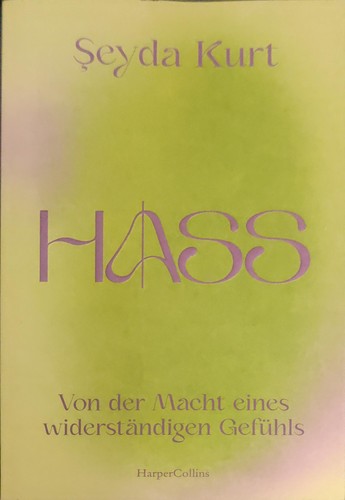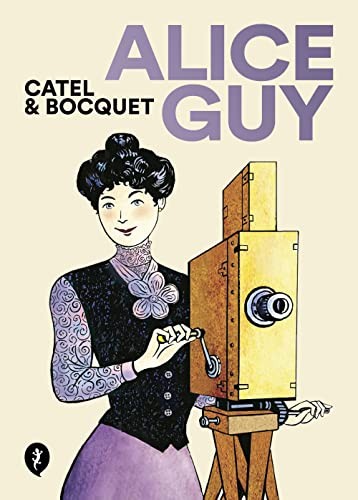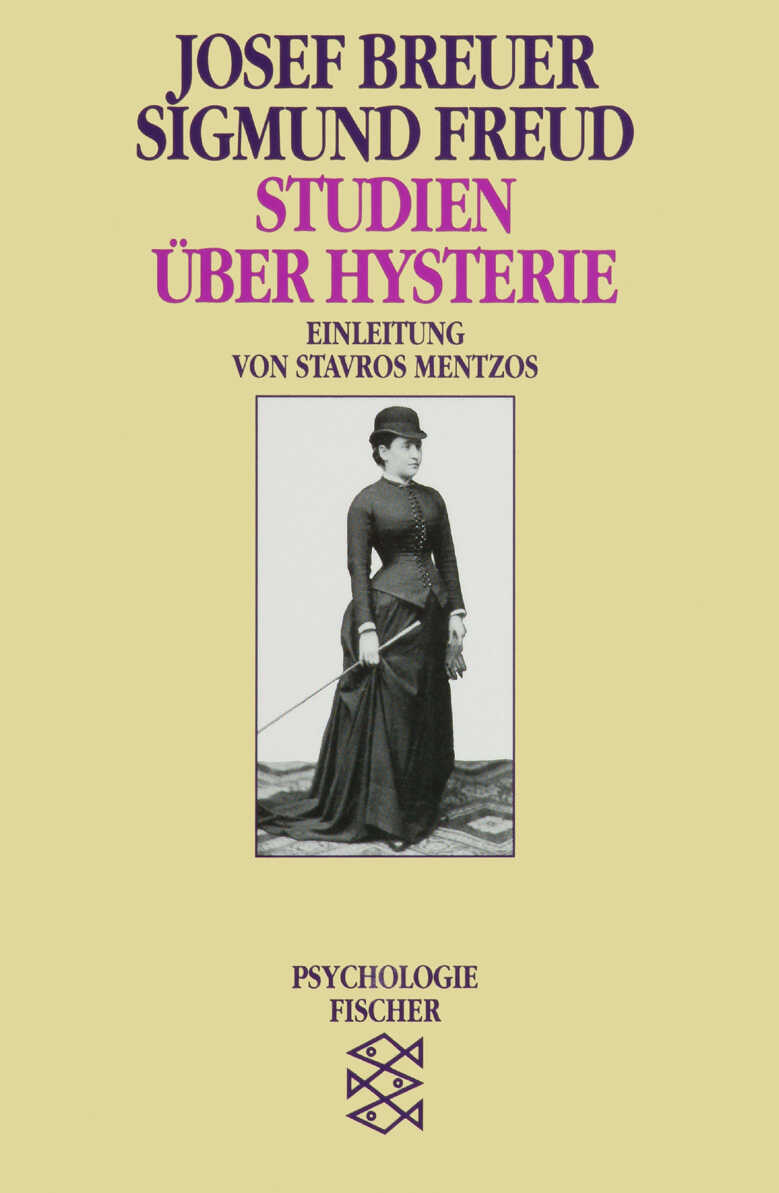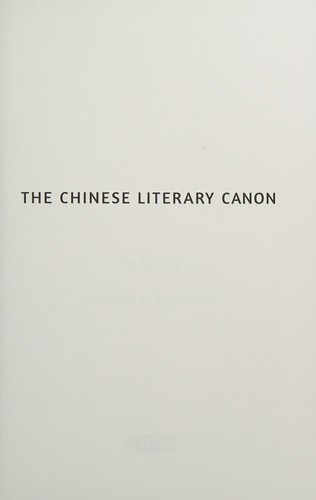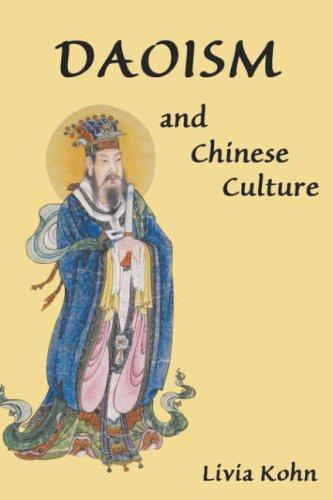This is a story written by an anarchist, set in a near-ish future where assisted suicide is legal. The protagonist is spending her last few days alive in an enclosed facility where everyone gets to wait three days for the date of their assisted suicide. The facility is described as a utopian space where social relations are kind and free, with the protagonist wondering why society outside can't be the same way. Bergstedt obviously wrote this story for the purpose of describing his ideas about how society should and shouldn't be. It's a very 18th century kind of approach but ok, why not. The problem is that Bergstedt isn't Voltaire and his prose is pretty bad. His dialogues suck because he gives all his characters the same voice, they all talk the same. His worldbuilding is muddled: the world outside the suicide space serves as its negative counterpart because the …
User Profile
silly little guy he/it
My languages in order of proficiency: German French English Chinese. The reason I read so much in English is only because most pirated epubs are in English. I have no consistent grading system, the stars are based on vibes, don't read into it. I am not a critic; my "reviews" simply document what it was like for me to read the book in question.
This link opens in a pop-up window
possm's books
Currently Reading (View all 8)
User Activity
RSS feed Back
possm reviewed Suizidalien by Jörg Bergstedt
Pretty bad
2 stars
This is a story written by an anarchist, set in a near-ish future where assisted suicide is legal. The protagonist is spending her last few days alive in an enclosed facility where everyone gets to wait three days for the date of their assisted suicide. The facility is described as a utopian space where social relations are kind and free, with the protagonist wondering why society outside can't be the same way. Bergstedt obviously wrote this story for the purpose of describing his ideas about how society should and shouldn't be. It's a very 18th century kind of approach but ok, why not. The problem is that Bergstedt isn't Voltaire and his prose is pretty bad. His dialogues suck because he gives all his characters the same voice, they all talk the same. His worldbuilding is muddled: the world outside the suicide space serves as its negative counterpart because the suicide space is supposed to be this anarchist utopia, but the time where the story is set is contrasted to our time, which is described as a darker past. So the outside world is described in contradictory terms and the entire worldbuilding is incoherent. Long sections of the book are just characters explaining to each other how the world used to work, describing our present time, and expressing shock at how bad it was. They go through several topics in this manner, for example the prison system. Again, this is just an 18th century stylistic device, Lettres Persanes style. Using an old stylistic device isn't a crime, I guess you could still pull it off in a modern novel if you were being clever about it and subverting the genre somehow. Bergstedt just plays it completely straight with no subtlety, creating a text that is just unbearably preachy.
Bergstedt tries his hand at gender deconstruction but he hasn't thought it through. The characters still think in gender categories. Some characters are painstakingly non-gendered by the narration, others are gendered, sometimes with a justification ("the protagonist thought that this character looked like a man"), sometimes without. It reads like Bergstedt has come across some community practices of gender deconstruction, has decided they were cool, put them into his story without thinking them through to their logical conclusion, and is now explaining them to you, the reader, like he invented them. (this is another problem with Bergstedt's writing - he sounds conceited (to me)) The issue with how Bergstedt writes gender is: he wants to write a world where gender categories are obsolete, because he wants to demonstrate to his readers that gender doesn't have to be important. But he himself still feels like gender is important, he still thinks in these categories, and he can't hide it. Bergstedt runs into a similar issue with disability, where he needs to include the subject but hasn't properly thought it through. Disabled people are nominally included, one character is in a wheelchair. But the entire suicide space as it is described is full of barriers. Characters sit in circles on the ground, sleep on mattresses on the ground, all cook together communally. The entire suicide space is premised on Bergstedt's individualist-anarchist idea of self-sufficiency and responsibility, which runs counter to the lived reality of a LOT of disabled or chronically ill people. Everyone is roaming around the suicide space freely and alone. No one is accompanied by a caretaker, no one is plugged to a machine... To state the obvious, a facility for assisted suicide would attract a huge number of disabled, chronically ill and terminally ill people. That would be the overwhelming majority of guests. Bergstedt would realize this if he actually engaged with the real-life people who are politically demanding assisted suicide now, instead of his own ideas about how philosophically interesting the concept is.
All in all the text is bad as a story because Bergstedt is a bad writer. It is also bad as a political manifesto because it offers no groundbreaking ideas, just commonplace leftist ideas (gender deconstruction, relationship anarchy, prison abolition, free association) presented as groundbreaking - and in many cases, not even presented correctly because the author didn't think them through or research them enough. I did find interesting the part about arguing and argumentative culture, because the method presented was genuinely new to me, but it would have been just as interesting without the framing device and the entire rest of the text. Waste of time.
possm finished reading Suizidalien by Jörg Bergstedt
possm started reading Suizidalien by Jörg Bergstedt
possm reviewed Histoire du taoïsme des origines au XIVe siècle by Isabelle Robinet (Patrimoines. Taoïsme,)
Another history of Daoism
3 stars
Reading this right after the Kohn one, it's impossible not to compare. This one covers much of the same ground but in more detail, it is less didactic and more centered on texts. I enjoyed it well enough but did find some passages tedious. I think it is more interesting for people deeper in the material; less beginner friendly.
Reading this right after the Kohn one, it's impossible not to compare. This one covers much of the same ground but in more detail, it is less didactic and more centered on texts. I enjoyed it well enough but did find some passages tedious. I think it is more interesting for people deeper in the material; less beginner friendly.
possm finished reading Histoire du taoïsme des origines au XIVe siècle by Isabelle Robinet (Patrimoines. Taoïsme,)
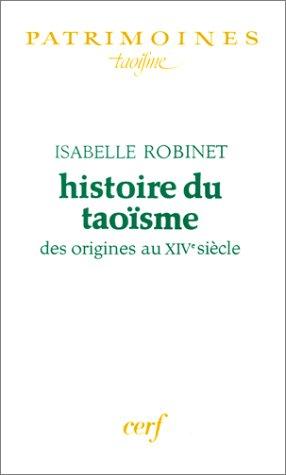
Histoire du taoïsme des origines au XIVe siècle by Isabelle Robinet (Patrimoines. Taoïsme,)
possm started reading Histoire du taoïsme des origines au XIVe siècle by Isabelle Robinet (Patrimoines. Taoïsme,)

Histoire du taoïsme des origines au XIVe siècle by Isabelle Robinet (Patrimoines. Taoïsme,)
Entertaining and instructive
4 stars
Fascinating seeing how the academic research and writing process worked before personal computers and the internet. Even if much of the more specific advice in this book is obsolete in the digital age, it is still worth knowing e.g. the logic behind a bibliographical entry (even if nowadays you'll get Zotero to generate it for you). The more general, broad advice on how to write, how to find a topic, what attitude to have towards your work and others' works that you cite, etc, is still applicable today. Eco uses tons of examples, real and fictional, that really help get an idea of what a dissertation in the humanities actually is. They help make the whole book tangible and entertaining. Good book all in all, would recommend to pretty much every humanities student.
Fascinating seeing how the academic research and writing process worked before personal computers and the internet. Even if much of the more specific advice in this book is obsolete in the digital age, it is still worth knowing e.g. the logic behind a bibliographical entry (even if nowadays you'll get Zotero to generate it for you). The more general, broad advice on how to write, how to find a topic, what attitude to have towards your work and others' works that you cite, etc, is still applicable today. Eco uses tons of examples, real and fictional, that really help get an idea of what a dissertation in the humanities actually is. They help make the whole book tangible and entertaining. Good book all in all, would recommend to pretty much every humanities student.
possm reviewed Daoism and Chinese Culture by Livia Kohn
Good introduction to religious Daoism
4 stars
I read this book as research for a class. It serves as a good thorough intro to the history and contents of Daoism viewed as a still-ongoing current of religious practice. The editing is pretty bad in this edition, there's a lot of typos. I didn't find that too distracting though.
I read this book as research for a class. It serves as a good thorough intro to the history and contents of Daoism viewed as a still-ongoing current of religious practice. The editing is pretty bad in this edition, there's a lot of typos. I didn't find that too distracting though.
possm finished reading Daoism and Chinese Culture by Livia Kohn
possm started reading Daoism and Chinese Culture by Livia Kohn
possm reviewed Dialektik der Aufklärung by Theodor W. Adorno
Made its way into my head and lives there rent free and I can't get it to leave
5 stars
I am still re-reading it, obsessing over paragraphs, taking notes and drawing diagrams, etc. Haven't worked this closely with an entire book before. Told myself I would wait until I have gained "enough understanding" of the text before I write a review, but I realize now that's not a smart goal to set. So here's a few sentences. This is a very dense text. You can read it multiple times and unlock new layers of meaning each time. Sometimes a little Nebensatz will contain multitudes. There's little dialectical movements to be found all over and it's always fun to spot them. The prose is beautiful and precise. I can't explain my current obsession with this book (and with Teddie in general) but it is what it is.
I am still re-reading it, obsessing over paragraphs, taking notes and drawing diagrams, etc. Haven't worked this closely with an entire book before. Told myself I would wait until I have gained "enough understanding" of the text before I write a review, but I realize now that's not a smart goal to set. So here's a few sentences. This is a very dense text. You can read it multiple times and unlock new layers of meaning each time. Sometimes a little Nebensatz will contain multitudes. There's little dialectical movements to be found all over and it's always fun to spot them. The prose is beautiful and precise. I can't explain my current obsession with this book (and with Teddie in general) but it is what it is.
possm rated Dialektik der Aufklärung: 5 stars

Dialektik der Aufklärung by Theodor W. Adorno, Max Horkheimer
Max Horkheimer und Theodor W. Adorno verfassten gemeinsam im US-amerikanischen Exil ihre Gedanken zur Dialektik der Aufklärung und veröffentlichten sie …
